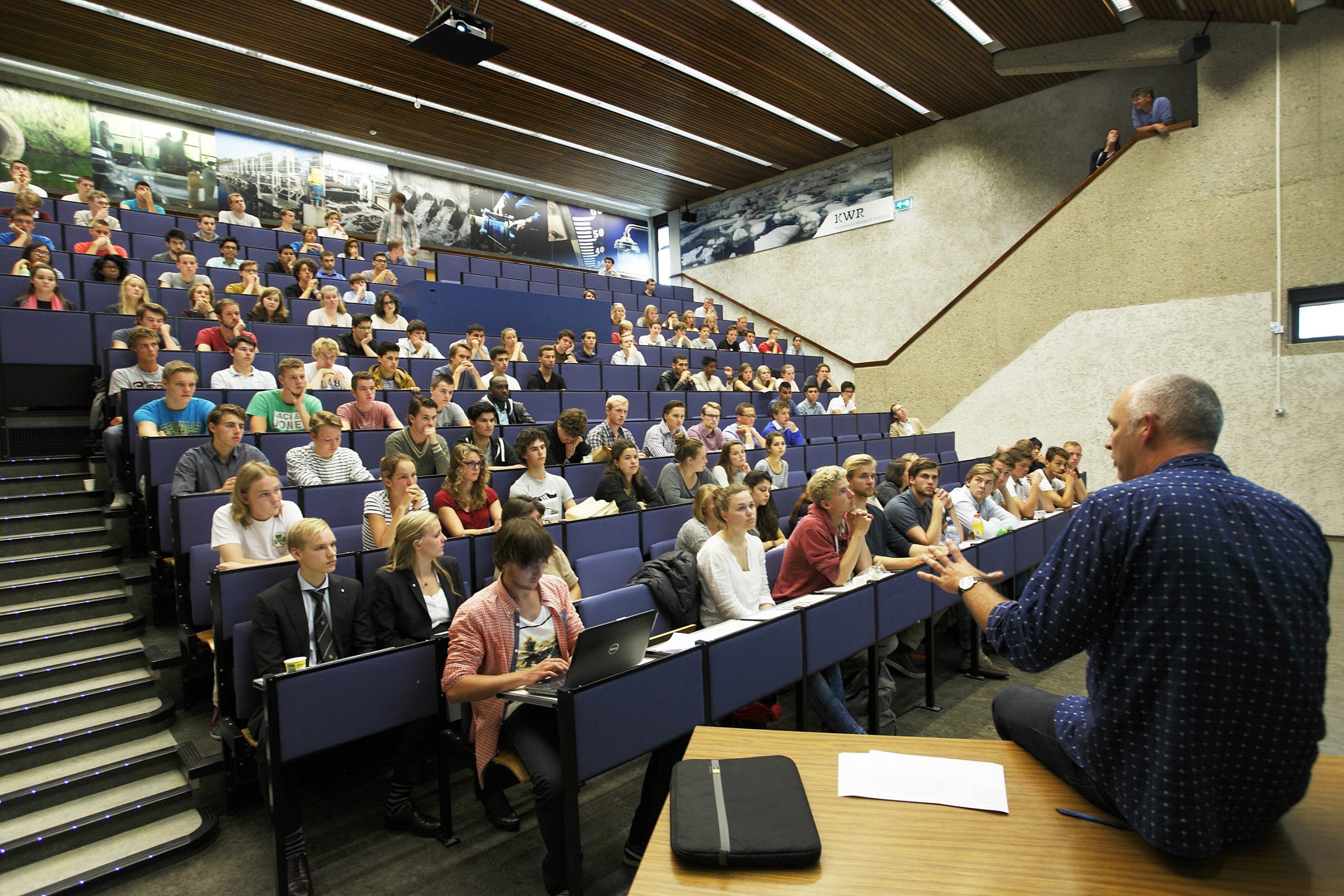This September, a new phase of internationalisation begins at TU Delft. Fourteen years after the university offered its first B.Sc. programme in English (a bachelor’s in aerospace engineering), a second English B.Sc. Applied Earth Sciences finally kicked off on September 1.
Spearheaded by the Department of Geoscience and Engineering, the faculty members and administrative staff have been working on the switch over the past year to ensure that not just course work, but all facilities were available in English on time.
Though a big task, things have been smooth so far. Almost 40% of the faculty’s staff is international, and for those that weren’t the transition and translation was not too difficult. The course also has a new website in English. While it is currently available in Dutch as well, the hope is to phase out the Dutch version with time.
“We didn’t advertise the course internationally this year, because we want to smooth out all the rough edges before a large number of international students join us,” says Professor Timo Heimovaara, Director of Studies, Applied Earth Sciences. There was a big demand for the course even among Dutch students, despite the switch to English. The first batch of the course has over 120 students and fewer than 10 of them are internationals. “Dutch students also understand that studying in English now will prepare them well for international jobs later,” says Heimovaara. From the few international students who are enrolled this year, they hope to get feedback on what improvements need to be made before they open to a wider international student body.
The other advantages of the change to English include the possibility of an exchange of staff with partner universities, more access to available research, and a move towards blended learning. All lectures that were not previously in English will be re-recorded by Collegerama as well.
When the course opens to an international market, hopefully in 2015, they hope to attract more quality students. “We need a larger source of students to sustain a classroom of over 100 students. The course itself is specialised and in high demand, and is more affordable than most other international options. A student has to pay £9,000 a year to study the UK whereas an EU student pays around €1,900 a year at TU. We hope that this will be a viable option for British students as well,” says Heimovaara.
The faculty’s student committee, Mijnbouwkundige Vereeniging, is also transitioning to English. Their annual weekend excursion, which took the students from company visits and introductory sessions, to a barbeque and an afternoon on the beach, was conducted entirely in English. “Because the bachelor’s will be in English this year, the excursion had to be in English too. There were 80 participants and 3 of them did not speak Dutch. We tried to do every speech in English, sometimes this was difficult but we think that everyone was satisfied,” said Talitha Groenewold, one of the education officers of the student committee. Groenewold says that while their website has always been bilingual, they are working on a new one to specifically cater to international students. “When you study Applied Earth Sciences, it is really easy to go and work abroad after graduating. There are some companies here where people do not always speak Dutch, so that is why it is also useful to have a bilingual website.”



Comments are closed.